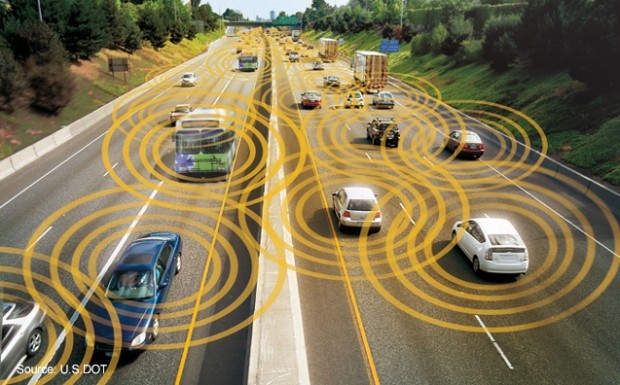As property/casualty insurers contemplate how to insurer autonomous vehicles, a new AIG study reveals consumers worry these cars and trucks of the future are particularly vulnerable to cyber breaches.
About 75 percent of respondents said they worried that driverless vehicles, even autos with autonomous features such as emergency breaking or lane departure avoidance, were vulnerable to cyber breaches, and hackers taking control.
What’s more, 67 percent said a cyber breach could expose personal data that the vehicle might acquire such as credit card information, when and where drivers travel, and any internet connections made from inside the vehicle. Respondents were also worried that hackers might be able to find out who was in the particular vehicle and even record private conversations.
Getting a good sense of consumers’ concerns about these and other risks erupting from the advent of driverless vehicles is crucial, said Lex Baugh, president, Liability and Financial Lines at AIG.
“As we move from autonomous features to fully driverless vehicles, risk does not disappear – it shifts from humans to machines,” Baugh said in prepared remarks. “Understanding consumer perceptions of where risk with new technology ultimately resides today will help industry and insurers understand where liability may lie tomorrow.”
Here are some additional survey highlights:
- 39 percent said they saw driverless vehicles as being safer than the typical human driver, but 27 percent disagreed. Approximately 31 percent said they didn’t see fully autonomous vehicles as being safer than they drive.
- Respondents saw accident responsibility with driverless cars shifting from individual drivers and more toward auto manufacturers and software developers that create the technology. About 50 percent of respondents said that if a driverless vehicle hit a pedestrian, the automaker would be most liable. Another 37 percent said the software provider would carry the biggest liability.
- 23 percent of respondents said a driverless vehicle’s occupant would still have some sort of liability, where 19 percent would pin that liability on the vehicle owner.
- A whopping 81 percent of respondents said that individuals who purchase or ride in fully driverless vehicles should still be required to get auto insurance.
- Americans surveyed said on average that it would take 22 years for driverless vehicles with no active involvement from human drivers to take up more than 20 percent of the vehicles on the road. They also said it will take about 34 years before driverless autos make up the majority of vehicles in the U.S.
- About 55 percent of respondents said that driverless cars won’t become widely available for some time due to high costs. Another 41 percent said autonomous vehicles will be limited in scope because their computer systems won’t have adequate security. Thirty-five percent of respondents said driverless vehicles won’t be safe enough for widespread use.
AIG, with McLaughlin & Associates and Pinkston Group, conducted their online study on Aug. 17-24, 2017, with responses from 1,000 adults in the United States.
Source: AIG





















 Viewpoint: Runoff Specialists Have Evolved Into Key Strategic Partners for Insurers
Viewpoint: Runoff Specialists Have Evolved Into Key Strategic Partners for Insurers  Reinsurance Program Could Wipe Out Need for Calif. FAIR Plan: Legal Exec
Reinsurance Program Could Wipe Out Need for Calif. FAIR Plan: Legal Exec  Focus on Ski Guides After Deadly California Avalanche Could Lead to Criminal Charges, Civil Suits
Focus on Ski Guides After Deadly California Avalanche Could Lead to Criminal Charges, Civil Suits  From Skill to System: The Next Chapter in Insurance Claims Negotiation
From Skill to System: The Next Chapter in Insurance Claims Negotiation 









